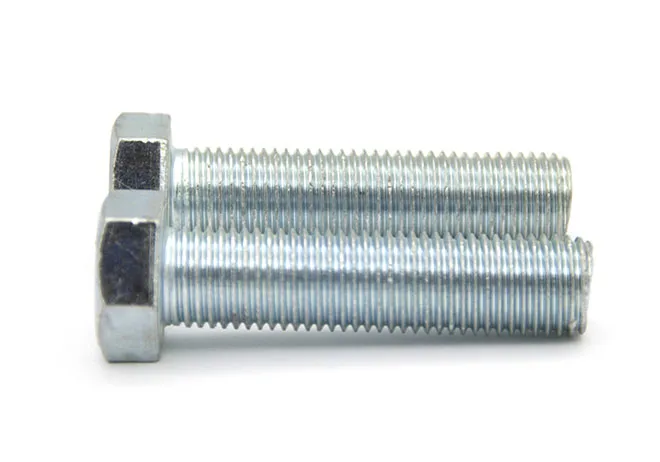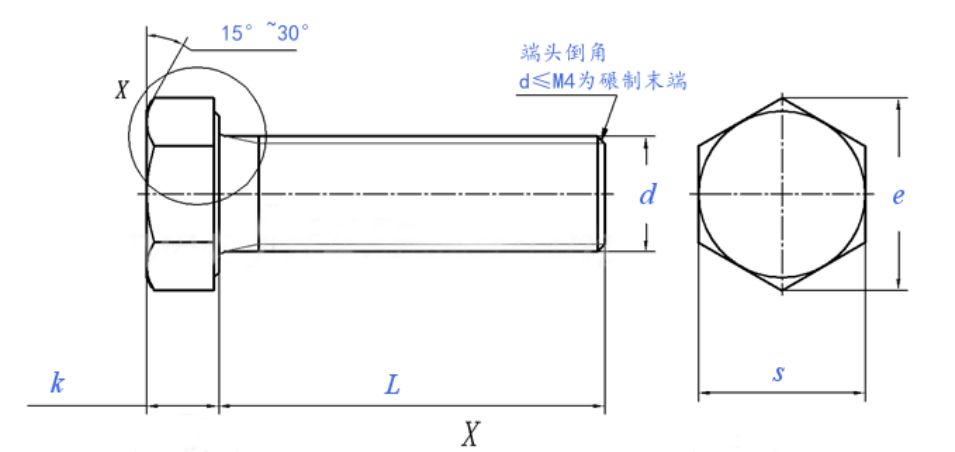washers
Jan . 06, 2025 19:07 Back to list
washers
Choosing the right washers can make all the difference in building a reliable and durable structure, be it a small DIY project or a major industrial construction. This guide is crafted to enhance your understanding of washers and support informed purchasing decisions, focusing on hands-on experience, technical expertise, authoritative insights, and trustworthy information.

Washers, often overlooked, play a crucial role in distributing load and preventing fastener loosening. Their applications span industries from automotive to aerospace. The challenge lies in selecting the ideal type to meet specific requirements. Types of washers include flat washers, spring washers, and specialty washers, each offering unique benefits and applications.
Flat washers are the most common type, used primarily to evenly distribute the load of threaded fasteners like screws or nuts. This prevents surface damage and ensures a tight, long-lasting connection. These are indispensable in preventing galvanic corrosion between piece parts of different metals.

Spring washers, also known as lock washers, add tension to bolted assemblies, preventing bolts from turning, slipping, or loosening due to vibration. They come in various forms like helical, wave, and Belleville or conical washers. Each is designed for specific applications and conditions. Understanding the distinction between a helical spring washer and a conical spring washer can drastically enhance assembly reliability in vibration-prone environments.
Specialty washers cater to distinct needs with design variations that solve specific challenges, such as sealing out environmental contaminants or electrically insulating a fastener from a workpiece. For instance, shoulder washers are crucial in electrical assemblies where insulative buffering is required to prevent short circuits.
When choosing washers, consider the material as it impacts performance under environmental stress. Steel washers, for example, are robust and durable, making them ideal for heavy-duty applications. Stainless steel versions resist corrosion, perfect for moisture-prone environments. For electrical applications, nylon washers provide excellent insulation properties, and in cases requiring the least metallic interaction, copper washers are highly conductive and offer excellent corrosion resistance.
washers
Real-world experience illustrates that even aesthetically minor choices in washers influence the broader system's efficacy. A construction manager once shared an oversight where using a non-corrosive washer in a marine environment led to costly repairs. On subsequent projects, selecting the appropriate stainless-steel washers saved time, lowered maintenance costs, and increased trust among clients.
Expert recommendations hinge on the specifics the fastener type, the materials involved, environmental factors, and mechanical or thermal demands. Comprehensive knowledge of these aspects can avert failures and enhance operational efficiency. Manufacturers often provide detailed specifications. Consulting these documents complements expert advice, reinforcing reliable choices.
Authority in the field of washers emerges from tangible results and in-depth knowledge. Professionals argue that while washers can appear minor in the procurement process, their precise roles bear major impacts on product life cycle and functionality. Implementing rigorous selection criteria refines quality control processes and customer satisfaction. This elevates reliability and nurtures consumer trust, evidenced by repeating business in engineering, construction, and manufacturing sectors.
Trustworthiness in your choice comes from integrating trusted sources and acknowledged standards in washer manufacturing. Consulting the specifications of ANSI, DIN, or ISO could fortify the credibility of your supply chain. Moreover, partnering with well-reviewed suppliers known for their adherence to quality standards assures consistency and reliability, reinforcing trust in the structural integrity of any project utilizing washers.
In conclusion, washers might be small components in the complex machinery of construction and engineering, but their impact is significant. From ensuring assembly stability to maintaining product integrity under challenging conditions, the informed choice of washer type and material grounds project success. Building this expertise enhances decision-making, extends product longevity, and fosters an environment of trust and authority in both consumer and professional communities.
Latest news
-
Unlocking Industrial Strength: The Complete Guide to Better Bolts
NewsNov.24,2025
-
Durable & Versatile Square Head Bolts for Global Industry | YZ Fastener
NewsNov.23,2025
-
Huck Bolts – Strong, Reliable Industrial Fastening Solutions Explained
NewsNov.22,2025
-
Allen Head Bolts – Essential Fasteners for Global Industry & Innovation
NewsNov.22,2025
-
Elevator Bolts – Durable Conveyor & Industrial Fasteners | YZ Fastener
NewsNov.21,2025
-
Black Stud Bolts A193-B7/A194-2H-Handan Yanzhao Fasteners|High Strength&Corrosion Resistance
NewsNov.21,2025
